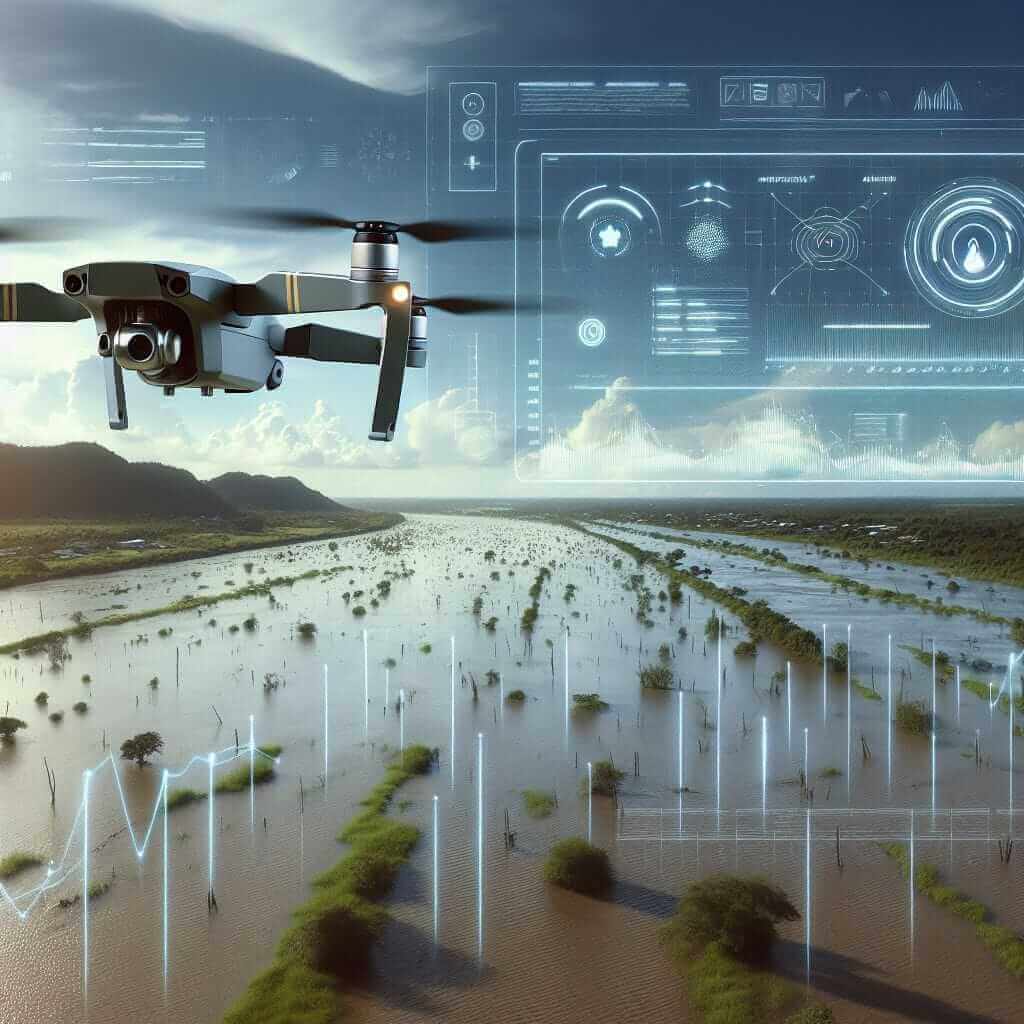The IELTS Reading section is known for its diverse range of topics, and one subject that is gaining popularity is the impact of technology on various aspects of life. Understanding the implications of AI in disaster response and management is not only timely but also highly relevant given recent advancements in artificial intelligence. By analyzing past exams and current trends, we can provide a comprehensive reading passage that offers valuable practice for IELTS candidates.
In this article, we offer a detailed IELTS reading practice passage on the topic “What are the implications of AI in disaster response and management?” Including pertinent questions and explanations akin to actual IELTS tests, this resource is designed to help candidates achieve higher scores in their Reading section.
Reading Passage: AI in Disaster Response and Management
Passage
Artificial Intelligence (AI) has revolutionized various sectors, including disaster response and management. The integration of AI technologies has enabled more efficient disaster risk assessment, early warning systems, and effective emergency response, significantly mitigating the adverse effects of natural and man-made disasters.
Early Warning Systems
AI technologies, such as machine learning algorithms and predictive analytics, play a crucial role in early warning systems. These systems analyze vast amounts of data from satellites, weather stations, and social media to predict the likelihood of disasters like earthquakes, floods, and hurricanes. For instance, AI-based models have been utilized to forecast hurricane paths with greater accuracy than traditional models, allowing authorities to issue timely evacuations and prepare resources effectively.
Resource Allocation
During disasters, the allocation of resources such as food, medical supplies, and rescue teams is critical. AI-driven systems can optimize this process by analyzing data in real-time to identify the most affected areas and the needs of the population. For example, AI algorithms can determine the most efficient routes for emergency vehicles, ensuring that aid reaches those in need as quickly as possible.
Damage Assessment
Post-disaster recovery efforts greatly benefit from AI’s ability to assess damage accurately. Utilizing satellite imagery and drones equipped with computer vision technology, AI can quickly evaluate the extent of damage to infrastructure, homes, and natural landscapes. This facilitates faster and more effective deployment of recovery efforts, minimizing downtime and economic losses.

Case Studies
Several case studies illustrate the successful application of AI in disaster response. In Japan, AI systems are used to monitor seismic activity and predict earthquakes, reducing the disaster’s potential impact. Similarly, in Australia, AI-powered drones assess bushfire damages, enabling rapid containment and rehabilitation efforts.
Ethical and Practical Considerations
While AI offers numerous advantages, it also raises ethical and practical concerns. Data privacy and the risk of algorithmic bias are significant issues that need addressing. Ensuring transparency in AI decision-making processes and enhancing the interpretability of AI-driven outcomes are crucial steps toward mitigating these concerns.
Questions
1. Multiple Choice
- According to the passage, what major advantage do AI-based early warning systems offer over traditional models?
- A) They are cheaper to operate.
- B) They predict disaster occurrences more precisely.
- C) They require less human intervention.
- D) They are widely available globally.
2. Identifying Information (True/False/Not Given)
- AI-driven resource allocation systems can help emergency vehicles take the quickest routes.
- In Japan, AI technology is used to predict the occurrence of earthquakes.
3. Matching Headings
Match the following headings to each paragraph in the passage:
- A) Ethical and Practical Considerations
- B) Damage Assessment
- C) Early Warning Systems
- D) Resource Allocation
4. Summary Completion
Complete the following summary of the paragraphs:
AI technologies such as machine learning and (4.1) play a significant role in early warning systems, enhancing the prediction accuracy of disasters like (4.2). In resource allocation, AI (4.3) data in real-time to optimize the delivery of (4.4).
Answers and Explanations
-
Multiple Choice:
- Answer: B) They predict disaster occurrences more precisely.
- Explanation: According to the text, AI-based models forecast hurricane paths with greater accuracy than traditional models.
-
Identifying Information:
- 1. True: The passage states that AI algorithms can determine the most efficient routes for emergency vehicles.
- 2. True: The passage mentions that in Japan, AI systems are used to monitor seismic activity and predict earthquakes.
-
Matching Headings:
- Paragraph 1: C) Early Warning Systems
- Paragraph 2: D) Resource Allocation
- Paragraph 3: B) Damage Assessment
- Paragraph 4: A) Ethical and Practical Considerations
-
Summary Completion:
- 4.1: predictive analytics
- 4.2: hurricanes
- 4.3: analyzes
- 4.4: resources
Common Mistakes and How to Avoid Them
When tackling the IELTS Reading section, some common mistakes include misinterpreting the question, not managing time effectively, and glossing over important details. Candidates should practice skimming and scanning techniques, aim to understand the context before answering questions, and allocate time to review their answers.
Vocabulary
- Mitigate (verb): [ˈmɪtɪɡeɪt] – to make less severe or serious
- Predictive analytics (noun): [prɪˈdɪktɪv əˈnælɪtɪks] – the practice of using historical data to predict future events
- Data privacy (noun): [ˈdætə ˈpraɪvəsi] – the protection of personal data from unauthorized access
Grammar
Focus on complex sentences and passive voice in academic writing:
- Complex Sentence: “While AI offers numerous advantages, it also raises ethical and practical concerns.”
- Passive Voice: “AI algorithms can determine the most efficient routes for emergency vehicles.”
Tips for High IELTS Reading Scores
- Practice Regularly: Consistency is key to mastering the Reading section.
- Expand Vocabulary: A rich vocabulary helps in understanding complex texts.
- Time Management: Allocate specific times for each question type.
By focusing on these strategies and completing practice tests like the one provided, IELTS candidates can enhance their reading skills and achieve their target scores.